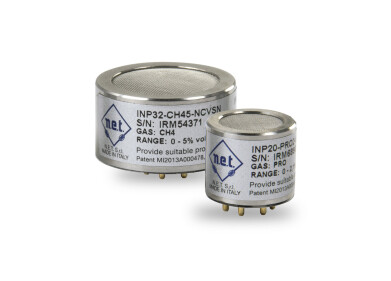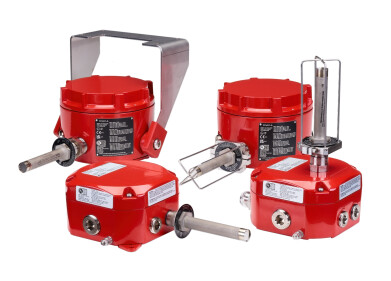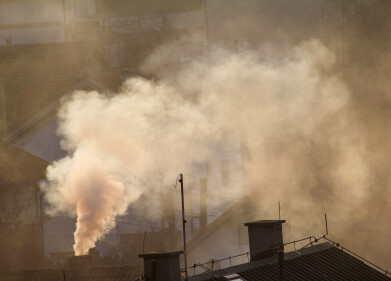Safety
New H2S & CO toxic gas detectors require no calibration checks for up to 24 months
Mar 31 2021
Protecting workers from the potentially lethal effects of hydrogen sulphide (H2S) and carbon monoxide (CO) gases is now simpler and more effective than ever with MSA Safety’s leading-edge TruCal® Technology, which is designed into its newest Ultima® X5000 and General Monitors S5000 Gas Detectors.
In the past, detecting H2S and CO with fixed electrochemical gas sensors has been challenging. A gas sensor’s electrolyte or one or more of the electrodes usually limits the life of the sensor, especially in high temperature or humid environments. These conditions and issues often required frequent recalibration or clearing of blocked sensors in these rugged environments commonly found in oil/gas production and petrochemical refining plants.
MSA's breakthrough TruCal technology for its XCell® H2S and CO sensors solves these problems with an extended calibration technology, which automatically self-checks and corrects sensor drift to extend calibration cycles up to 24 months using Adaptive Environmental Compensation (AEC) algorithms. This capability eliminates bump checks and assures the user that the sensor is healthy, measuring accurately and capable of detecting gas continuously.
The Ultima X5000 and GM S5000 Gas Detectors with TruCal Technology deliver reliable H2S and CO protection to achieve worry-free safety without sacrifice. This is accomplished by combining an internal electronic interrogation of their XCell gas sensor’s functionality (pulse check) with an acoustic system (diffusion supervision), which monitors the gas inlet path for blockages that would prevent gas from reaching the sensor.
The result is a comprehensive sensor self-check capability for the Ultima X5000 and GM S5000 Detectors that interprets the results of these two tests and confirms the sensor is able to accurately respond to H2S or CO or makes adjustment to the sensor sensitivity if necessary. Furthermore, these sensors are able to identify and communicate to the user and plant control system if the sensor inlet has become obstructed, is nearing the end of its life, or is in need of calibration. TruCal’s self-check is automatically performed every 6 hours
without any user intervention. TruCal eliminates the need for regularly scheduled calibrations. Sensors will perform within stated performance specification for 24 months without manual calibration.
The Ultima X5000 and S5000 Gas Detectors also feature dual sensor design capability, which doubles the sensing power with half of the footprint of a single gas transmitter. Their built-in SafeSwap™ capability also enables the safe and quick replacement of XCell sensors without turning off the instrument for reduced maintenance time.
The intelligent design of the X5000 and S5000 detector’s local interface makes it simple to install, use and maintain. The detector’s display shows instrument status (power, fault or alarm), Bluetooth connection status and gas readings at a glance. A unique touch button interface provides rapid access to all settings and functions.
The X5000 and S5000 detectors offer a number of alarm signalling output choices. In addition to dual 4-20 mA current source or sink, HART, Modbus and optional Bluetooth® digital communications are available. The Bluetooth® interface connects with MSA’s Apple® iOS or Android® X/S Connect App. Workers will appreciate the safety of wirelessly accessing the detectors up to 75 feet (23 meters) away using the smartphone or tablet of their choice.
The X5000 and S5000 detectors address a wide range of application needs. They feature global safety approvals and are ideal for oil/gas production including offshore platforms; floating production, storage and offloading (FPSO) vessels; and marine tanker service; as well as in petrochemical refineries, large tank storage systems and distribution facilities. In addition, they support a wide range of other heavy-duty industrial process and manufacturing plants wherever toxic or combustible gases are found.
Digital Edition
PIN 25.5 Oct/Nov 2024
November 2024
Analytical Instrumentation - Picturing Viscosity – How Can a Viscometer or a Rheometer Benefit You? - Sustainable Grease Formulations: Evaluating Key Performance Parameters and Testing Method...
View all digital editions
Events
Jan 20 2025 San Diego, CA, USA
Jan 22 2025 Tokyo, Japan
Jan 25 2025 San Diego, CA, USA
SPE Hydraulic Fracturing Technology Conference and Exhibition
Feb 04 2025 The Woodlands, TX, USA
Feb 05 2025 Guangzhou, China



















